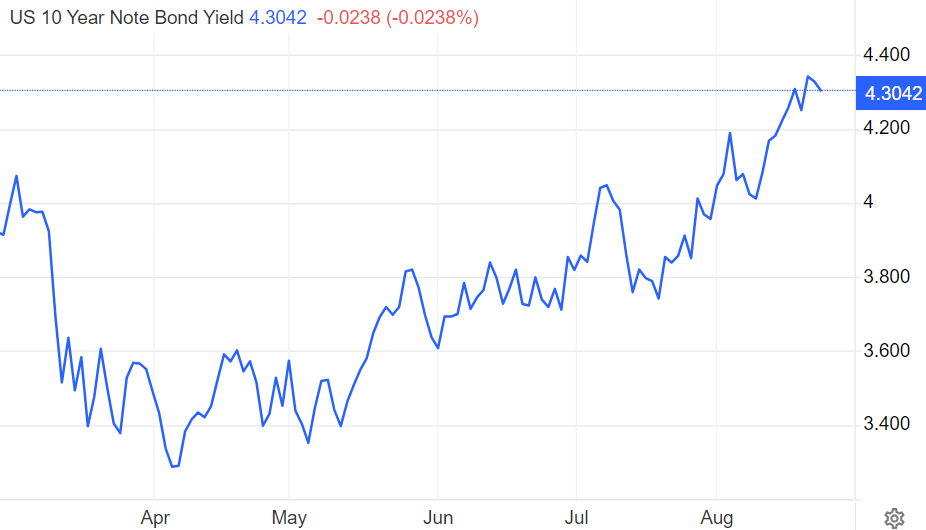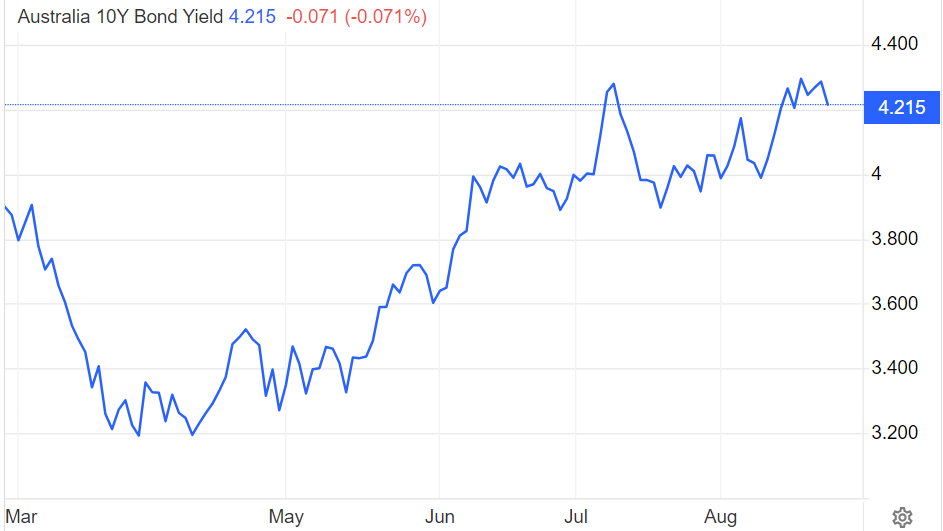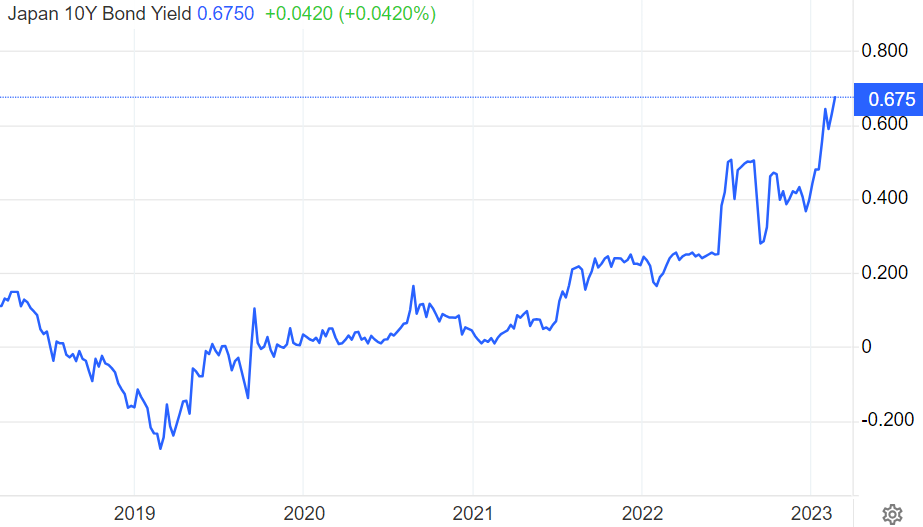What’s behind the sudden spike in bond yields?
It’s the big question that equity and bond investors are asking, and we sought answers from Capital Group, one of the world’s largest active investment firms.
There have been big moves in bonds over the past few months. This week, the US 10-year Treasury yield touched a 15-year high. At 37 months, it’s also the longest correction in US Treasuries since the early 1980s.

Source: Trading Economics
Australian bonds have followed suit. This week, the Australian 10-year bond yield reached its highest point since 2014.

Source: Trading Economics
What’s driven these sharp moves in bonds? There are several theories.
The first is that the US Federal Reserve is behind the curve, even after raising rates by 500 basis points. This suggests that the Fed still isn’t doing enough to fight inflation and it’ll need to raise rates more than markets expect.
The second theory is that Japan is to blame. In late July, the Bank of Japan announced changes that would allow its yield curve control program to gradually expire, if economic conditions were favourable. Up until then, the central bank had been buying large quantities of Japanese government bonds when 10-year yields went towards the upper range of its 0.5% target.
Since the changes, Japan’s 10-year government bond yield has risen steeply. And given Japan is the largest foreign owner of US Treasuries, the theory is that Japanese investors have been selling US bonds because, suddenly, they’ve had the opportunity to get attractive yields at home.

Source: Trading Economics
Another theory
While these may be contributing factors in the US bond sell-off, Capital Group suggests there could be an additional reason at play. Capital Group manages about US$2.2 trillion – split between US$1.7 trillion in equities and US$500 billion in bonds. That makes it one of the world’s largest active investment firms.
Capital Group’s Investment Director of Fixed Income, Jeremy Cunningham, told Morningstar on a visit to Australia this week, that he thinks the bond market may be discounting stronger than expected global economic growth.
Jeremy Cunningham

Late last year, the consensus view was that the global economy was headed for recession after the steepest US rate hikes in 50 years. So far though, economies have proven resilient, and Cunningham believes the bond market is now adjusting to that.
He doesn’t expect it to last though. Cunningham sees a reasonable probability that rising interest rates will soon start to hurt US consumers and corporates. Historically, interest rates impact economies with a lag of 18 to 24 months. It’s been 16 months since the first US rate increase.
Consequently, Cunningham expects US bond yields to ease as economic growth in America slows. He doesn’t predict a dramatic economic slowdown, though it will be enough to bring relief to the bond market.
He says this will be aided by continued weak growth out of China. Cunningham recently visited China and Hong Kong and he was surprised by how negative locals were on their economies. The much-anticipated economic bounce from Covid lockdowns easing hasn’t happened, and property and consumer sentiment are weak. Capital Group is expecting 0% GDP growth in China in the second half of the year.
That won’t help exporters like Europe. Cunningham describes the economy there as ‘dire’, and with his predicted softness in US and Chinese economies, that won’t help Europe for the remainder of this year.
How this impacts investor portfolios
Given this, what should investors do? Recent surveys from Vanguard suggest that many investors in Australia are switching into cash, given the current economic uncertainties. Cunningham reckons this is an error. If bond yields trend down as he expects, then cash yields will head south too.
He thinks investors would be better off putting some of their money into high-grade corporate bonds. Globally, these bonds are yielding 6% in US dollar terms. And if you lock this yield in for five years, Cunningham believes that would be a better option than cash. He suggests that on a three-year view, investment grade corporate bonds are very attractive.
That doesn’t mean that investors should take big bets though. Cunningham says that if you are running a portfolio against a benchmark, sticking to ‘neutral’ allocations makes sense given the current macroeconomic uncertainties.
James Gruber is an assistant editor at Firstlinks and Morningstar.com.au

